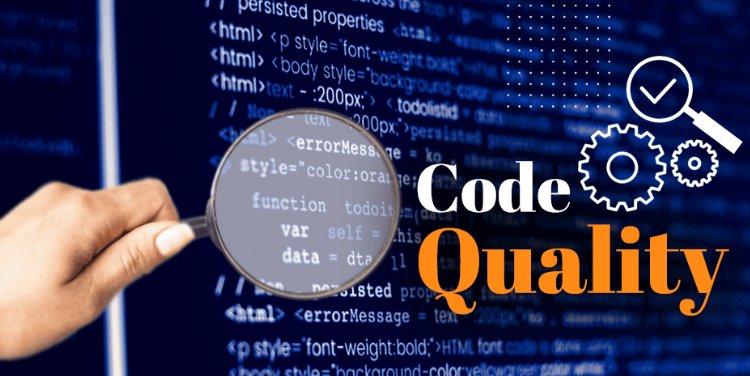Elevating Your Code: A Guide to Achieving High-Quality Software

Code quality is the cornerstone of successful software development. It's not just about making your code work; it's about making it work efficiently, reliably, and maintainably. High-quality code is the key to building robust applications that stand the test of time. In this blog, we will explore the importance of code quality, its impact on development projects, and practical tips for elevating the quality of your code.
Why Code Quality Matters:
-
Maintainability: Code is read more often than it is written. High-quality code is easy to read, understand, and modify. When code is maintainable, developers can quickly grasp its logic and make changes without introducing errors. This is crucial for the long-term success of a project.
-
Reliability: Quality code is reliable. It behaves predictably under different conditions and is less prone to bugs and unexpected behavior. Reliable code ensures that the software functions as intended, boosting user confidence and satisfaction.
-
Scalability: As your software grows, maintaining scalability becomes essential. Code that is well-structured and follows best practices can easily adapt to changing requirements and scale seamlessly, saving developers time and effort.
-
Collaboration: In a collaborative development environment, code quality is paramount. Clean and well-documented code makes it easier for team members to collaborate, share knowledge, and contribute effectively to the project. Consistent coding standards enhance communication within the team.
Practical Tips for Improving Code Quality:
-
Follow Coding Standards: Adhering to a set of coding standards ensures consistency in your codebase. This includes naming conventions, indentation, and formatting. Many programming languages have established coding standards (e.g., PEP 8 for Python), and using linters can help enforce these standards automatically.
-
Write Meaningful Comments: Comments provide context to your code. Write comments that explain the purpose of functions, algorithms, and complex logic. However, avoid over-commenting; focus on explaining the why, not the what.
-
Use Version Control: Version control systems (e.g., Git) are essential for tracking changes, collaborating with others, and rolling back to previous states if necessary. Regularly commit your changes with clear and concise commit messages.
-
Automated Testing: Implement a robust testing strategy. Automated tests, including unit tests, integration tests, and end-to-end tests, help catch bugs early and ensure that changes don't introduce regressions. Continuous Integration (CI) tools can automatically run tests with each code push.
-
Refactoring: Refactoring involves restructuring existing code without changing its external behavior. Regularly review and refactor your code to improve its structure, eliminate duplication, and enhance readability. This process helps keep technical debt in check.
-
Code Reviews: Foster a culture of code reviews within your team. Peer reviews provide valuable insights, catch potential issues, and spread knowledge across the team. Focus on constructive feedback and use code review tools to streamline the process.
-
Documentation: Document your code thoroughly. A well-documented codebase makes it easier for new team members to get up to speed and for existing members to remember the purpose and usage of various components.
Investing time and effort in maintaining high-quality code pays off in the long run. It reduces the likelihood of bugs, facilitates collaboration, and ensures the longevity and success of your software projects. By following best practices, embracing coding standards, and fostering a culture of continuous improvement, you can elevate your code to new heights and set the foundation for successful software development.
What's Your Reaction?















